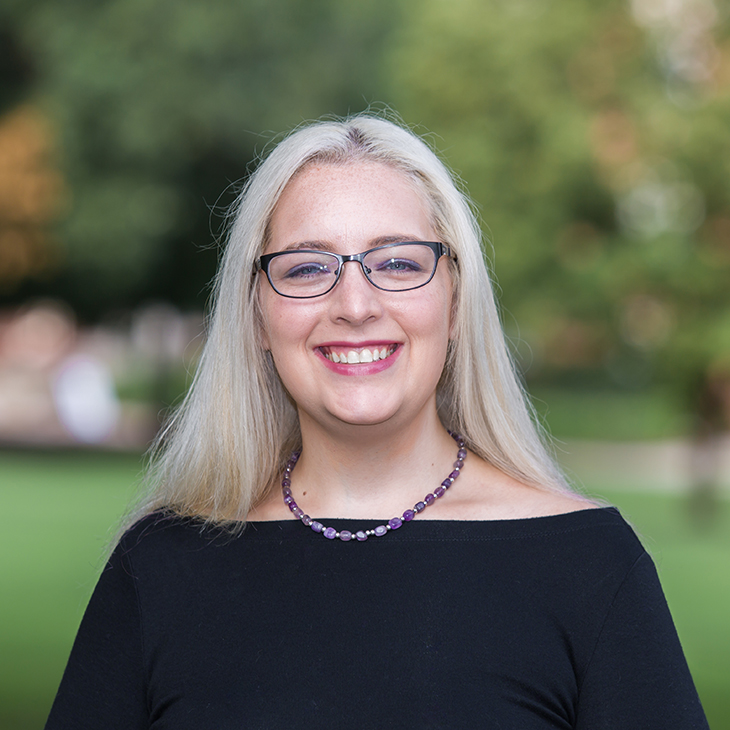
Mel Lantz Receives National Counseling Psychology Award
Tuesday, February 5, 2019
Mel Lantz, assistant professor in counseling and counseling psychology, has received the Society of Counseling Psychology (SCP) Early Career Award for Distinguished Professional Contributions to Counseling Psychology. This award is presented by the American Psychological Association (APA) Division 17 and honors distinguished scientific contributions by an early career psychologist to the field of counseling psychology.
“Dr. Lantz is passionate about her work in counseling psychology and has a significant history of leadership in the SCP, beginning as a doctoral student,” said Julie Koch, head of the School of Community Health Sciences, Counseling and Counseling Psychology. “Her identities as a scientist-practitioner, advocate and mentor drive her to continue her involvement at the national level. This award brings national recognition not only to Dr. Lantz, but also to the counseling psychology program at Oklahoma State.”
Lantz joined the OSU College of Education, Health and Aviation faculty in 2018, and she currently serves as the director of training for the counseling psychology doctoral program. Prior to coming to OSU, Lantz was an assistant professor and director of the Psychological Services Clinic at Louisiana Tech University. She earned her doctorate in counseling psychology from the University at Albany in 2015. Lantz’s research interests include multicultural competence, multicultural training and education, social justice, LGBTQI issues, diversity in higher education, substance abuse and addition.
The Society of Counseling Psychology’s mission is to bring together psychologists, students and international and professional affiliates who are dedicated to promoting education and training, scientific investigation, practice, diversity and public interest in professional psychology. The organization strives to connect, collaborate and coordinate efforts toward creating a more just and equitable world where all people and communities can thrive.
